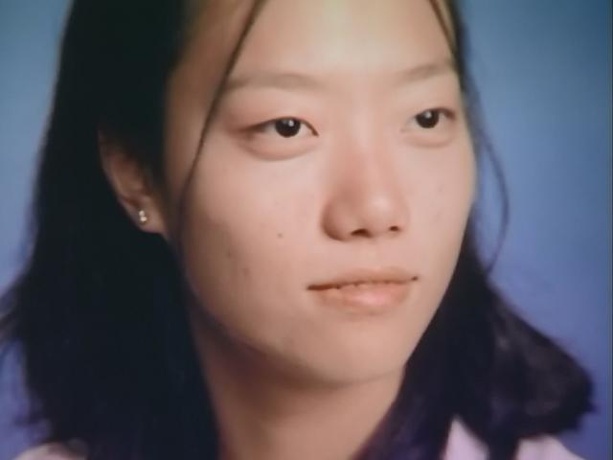By SUEVON LEE | @suevlee
editor@charactermedia.com
The Oxford English Dictionary may have recently released its “Word of the Year,” but the one buzzword on everybody’s lips these days seems to be “Serial.”
For those just hearing about it, Serial is a weekly podcast from the producers of This American Life whose first season has focused on a decade-and-a-half-old murder that took place in Baltimore County, Maryland.
The story centers around the death of Hae Min Lee, who was a senior at Woodlawn High School when she disappeared the afternoon of Jan. 13, 1999. Her body was found a month later in a city park; the 18-year-old had been strangled.
Implicated in the crime was Lee’s fellow classmate and ex-boyfriend Adnan Syed, who, following a jury trial in Baltimore, was convicted of the murder and sentenced to a life term behind bars, where he remains today in a maximum-security prison.
Journalist Sarah Koenig embarked on a yearlong investigation into the crime after a close family friend to Syed, convinced of his innocence, urged her to revisit the details of the incident, treated by authorities as a closed case.
First airing in early October—and available for streaming and download starting with Episode One—Serial seeks to answer the many questions that have confounded Koenig, the show’s narrator and host, since she began her investigation last year.
The ongoing podcast is a work-in-progress: Koenig continues to report and uncover new facts in real time, with each new hourlong episode airing every Thursday. The compelling part of the program is the conversational style of narration and its pacing. Koenig has said in interviews she doesn’t actually know the truth, whether Syed is guilty or not—in each new installment, she unearths some new detail or revelation that plants new doubts.
Avid listeners of the show—who have helped Serial average 1.26 million downloads per episode and become the fastest iTunes podcast to top 5 million downloads—are invited into Koenig’s repeat telephone conversations with Syed, speaking to her from prison, plus interviews with friends and classmates of Lee and Syed, in addition to the narrator’s personal ruminations about the complex web of allegations the case entails.
While there is no dispute the series has become a national obsession, it’s the program’s treatment and interpretation of its characters’ respective cultures that has touched off a feisty debate in recent days.
Lee’s parents are Korean immigrants while Syed is Pakistani American who was raised in a Muslim household. Described on the podcast as carefree, typical teens, Lee and Syed, we learn, were wrapped up in the usual teenage pursuits such as after-school track practice, homecoming dances, down time with friends, driving to the mall, after-school jobs—and clandestine dating to evade parental notice.
Their ethnic backgrounds are referenced early on, but never dominate the frame, so to speak.
Former Grantland writer and editor turned New York Times Magazine contributor Jay Caspian Kang, in an essay published on The Awl last week, argues that the podcast is problematic because it involves “an immigrant story” told by a white journalist whom Kang argues comes across as “a cultural tourist” in the ultimate example of “white privilege in journalism.”
While Kang writes he is willing to cut the episodic podcast “enough slack to regard it as an experiment in form,” he adds: “I am still disturbed by the thought of Koenig stomping around communities that she clearly does not understand, digging up small, generally inconsequential details about the people inside of them, and subjecting it all to that inimitable This American Life process of tirelessly, and sometimes gleefully, expressing her neuroses over what she has found.”
That piece, and like-minded criticism published elsewhere, led to this rebuttal published by the New York Observer, in which writer Lindsay Beyerstein poses the question, “So, why is there a cottage industry of think pieces dedicated to making us feel guilty about liking Serial?” Beyerstein argues that Koenig as narrator, if anything, subverts listener stereotypes and challenges their assumptions about the minority characters.
Rabia Chaudry, the woman who initially contacted Koenig about Syed’s circumstance, also added her two cents about the podcast’s treatment of race in this Q&A, saying: “The fact that the Serial team is all white means that maybe they won’t quite get some things about Korean culture or our [Muslim] culture, but so what? Then we explain it.”
Whatever your views on this thread of conversation—for most people, Serial is just a compelling, expertly produced true crime narrative–some omitted elements to the story seem hard to ignore. For instance, where is Lee’s family in the story?
Part of that question may have been addressed this week when a person professing to be Hae Min Lee’s younger brother acknowledged the series’ explosive popularity in a Reddit post.
“To you listeners, its another murder mystery, crime drama, another episode of CSI. You weren’t there to see your mom crying every night, having a heartattck when she got the new that the body was found, and going to court almost everyday for a year seeing your mom weeping, crying and fainting,” the post reads. “You don’t know what we went through.”
Nevertheless, the post’s author is honest about his reaction to the podcast. “Although I do not like the fact that SK [Sarah Koenig] picked our story to cover, she is an awesome narrator/writer/investigator,” the post reads.
In the meantime, Syed is appealing his conviction by arguing his trial attorney showed ineffective assistance of counsel. The state’s case against Syed rested mainly on the testimony of a friend who claimed he helped Syed dump Lee’s body in Baltimore’s Leakin Park.
We don’t know whether Serial, which aired its ninth episode Thursday, and plans at least several more episodes before concluding the season, will ever broach the family angle—but we know if it does not, it’s not for apparent lack of effort.
“It’s an upsetting story. A girl was murdered and it’s horrible,” host Koenig told Time in an interview in late October. “Getting people to talk to me about that and be honest with me about that is hard. For a lot of these people, even those not directly involved, this was the defining horror of their lives. It’s hard for them.”
The Baltimore Sun, which initially covered Lee’s murder and Syed’s conviction 15 years ago, circled back to the tragic saga in an Oct. 10 article, recalling that at Syed’s sentencing in 2000, Lee’s mother, Youn Wha Kim, told the court via an interpreter that she had moved to the United States from Korea to provide her children “a decent education and a decent future.”
“‘I would like to forgive Adnan Syed, but as of now, I just don’t know how I could,’” the Sun reported her saying. “‘When I die, my daughter will die with me. As long as I live, my daughter is buried in my heart.’”
To catch up with the beginning of Serial, start here.
Photo courtesy of WBALTV







